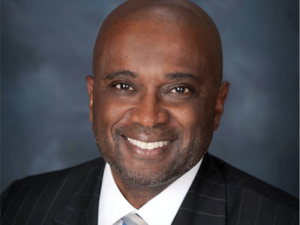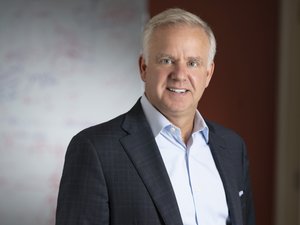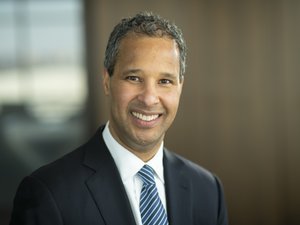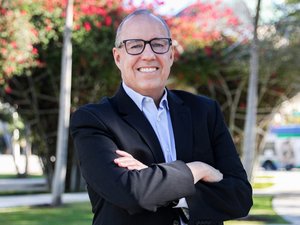New Teaching Strategies President Ashley Mathis started off not as a teacher or educator, but in growth and dot-com companies.
She just stumbled into education technology when she started at Discovery Education, an arm of Discovery Communications, about 12 years ago as one of the first employees and focusing on sales and marketing. In 2012, she joined Teaching Strategies, which focused on early childhood digital curriculums and classroom resources, and for the past five years, she's mostly been in sales or marketing roles. Most recently, she was the Chief Revenue Officer of the company.
In January, Mathis was named the president of the ever-growing edtech company—a choice that was probably best seeing as the company's CEO, Kai-lée Berke, has told Mathis she's the only one who knows how to keep pace with her.
Mathis spoke with DC Inno about her goals for Teaching Strategies, how she stumbled into edtech and the challenges most edtech companies face.
In the past few decades, how have you see edtech adapt and change?
Really, I've witnessed first hand the digital shift in education and how teachers can benefit from technology in their classrooms. Technology in the classroom has increased efficiency for teachers and lets them maximize time. Teachers want to spend as much time as possible building those relationships with students and working one-on-one, and technology--with the efficiencies that it creates--really lets them have more one-on-one time.
Why did you decide to take on this new role as Teaching Strategies president? What are you looking forward to?
I'm really excited to be a partner with Kai-lée [Berke, the Teaching Strategies CEO]. She's an incredible leader and she has a great vision for our company, and we've set out a pretty fantastic strategic plan for the next five years.
I think I bring a lot of expertise to this role. You know, I've spent 12 years working with districts and states and schools and corporations in the state to implement our products, and I think I have a really well-rounded view of not only what's going on on the ground, but what's happening at the policy level, and I really can work closely and collaboratively with our staff to make sure that not only that our resources continue to resonate, but that we have the resources we need to support our customers.
CEOs and presidents work pretty closely together. Tell me a bit about your relationship with CEO Kai-lée Berke.
Kai-lée is someone who has a very, very strong vision for the company, and she runs at a pretty fast pace. She's often said I'm the only person she's ever met who can keep pace with her. I think that that's really important. When you're working in a growth company and you have this amazing opportunity, it's really important to make sure that you can keep up with each other. I largely see my role as helping the other departments making sure that their goals, priorities are aligned with that and that they can keep pace. A lot of that is aligned with making sure that we're scaling the business properly.
As a leader in a growth company, it's absolutely critical to not only be adaptive to what's going on and to be nimble, but especially to make sure that everybody's goals and priorities are in line with what we're trying to do and where we are in that growth stage.
Any growth company and certainly any edtech company is trying to be ahead of the market.
On that note, what are some of your goals as president and for the company moving forward?
Our goals are largely around making sure that we put our customers first, that we really value our customers and put them at the heart of what we do. That translates not only into the way that we develop products but also the way that we work with customers to implement those products to make sure that we have the right support resources in place to meet them where they are and also to help them improve. We measure the success of our company on the success of our customers.
The second big goal is to continue to grow, and a lot of that is going to be coming not only from expansion in our digital products but also focusing on our expanded products and making sure that those integrated resources are front and center for our existing clients and new clients.
There are a couple of other goals to that are internal, focused on scalability, and things along those lines, and making sure that we keep our mission at the heart of what we do.
What are some challenges you see facing the edtech space? How is Teaching Strategies prepared for that?
Any growth company and certainly any edtech company is trying to be ahead of the market. I think the challenges will continue to be to innovate to be slightly ahead of the market, but not lose that connection you have with the teachers. At the end of the day, the end user and the ability to engage with your company is the most important thing. The risk is innovating for innovation's sake.
A lot of the challenges that edtech companies face is scaling for growth, and making sure that you're making the right decision that's appropriate for the stage of growth.
It's a fine line, and it's a bit of a balancing act. It's something that we're constantly thinking of as we develop new technology products. It's also why a lot of our staff is fresh out of the classroom because we believe that that fresh approach to what's going on in the classroom and to making sure that this will resonate with teachers and be practical as well as cutting edge. That's really important.
Beyond that, I think a lot of the challenges that edtech companies face is scaling for growth, and making sure that you're making the right decision that's appropriate for the stage of growth that you're in as well.
Why have you stayed in the D.C. community? What makes it unique?
I'm actually fifth-generation D.C., which I don't think that many people can say. I grew up here, I love it here. I think it's an exciting and really interesting place to live. It's sort of the intersection of policy and advocacy in practice that's here in D.C. that we can stay connected to and helps inform our work.
But there's a really exciting tech scene here, and there are so many talented folks that are coming to this area who are really solving big social issues and challenges and creating efficiencies for people in the edtech space. Overall, I think that D.C. is emerging as a really exciting tech scene and making it a more exciting place to be.
Anything else?
I would advise anybody entering the edtech space to be very focused on the mission of their company and to use that mission as a compass for what you do and how you do it. This is a space where relationships matter and educators really do know who is truly dedicated to making a difference in the lives of teachers and parents and children.
Note: This interview was edited for length and clarity.
Image used via CC0 License — credit Pixabay




